文章来源于微信公众号:盆盆植物园
奇丽闭鞘姜(Costus spectabilis)为闭鞘姜属多年生草本植物,俗称黄色小号,尼日利亚(Nigeria)国花,分布于非洲热带地区, 生长于树木繁茂的草地和落叶林地中,偶尔会出现在白蚁丘或岩石周围。
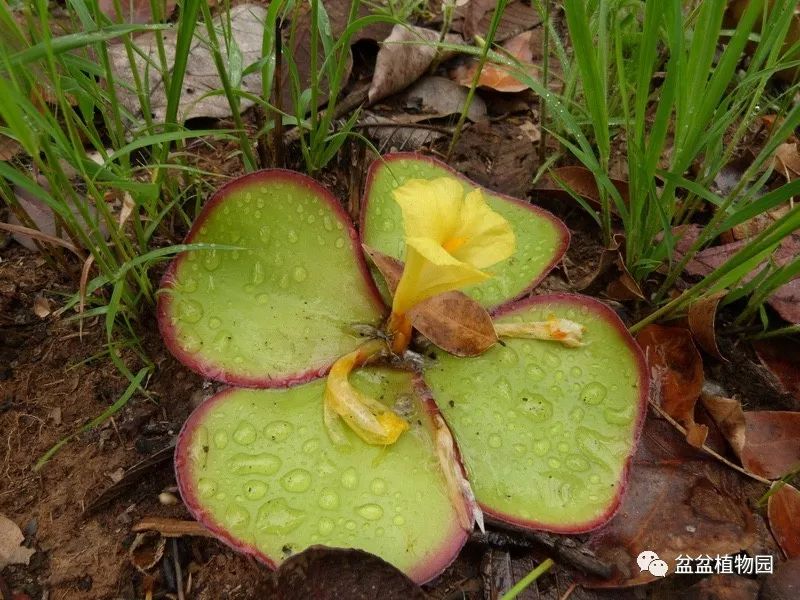
四片大肉质叶子,平躺在地面上,形成一个基部莲座丛。它们上面是无毛的,下面是短柔毛,特别是在中脉。叶缘整个通常具有紫色粉红色的边缘。顶生花序,从莲座丛的中心生长。单独开放黄色艳丽的花朵,迅速死亡,但紧接着是另一个。在冬季休眠,萎缩成没有根的蜈蚣状根状茎。在春天,它产生桨状叶子,当完全成形时,它可以贴在土壤上,类似于睡莲垫。背面叶子表面具有海绵状白色纹理。花是明亮的黄色,边缘清脆,大约9厘米,有一个大的staminodial labellum,类似于南瓜。花质地柔软。(谷歌翻译)
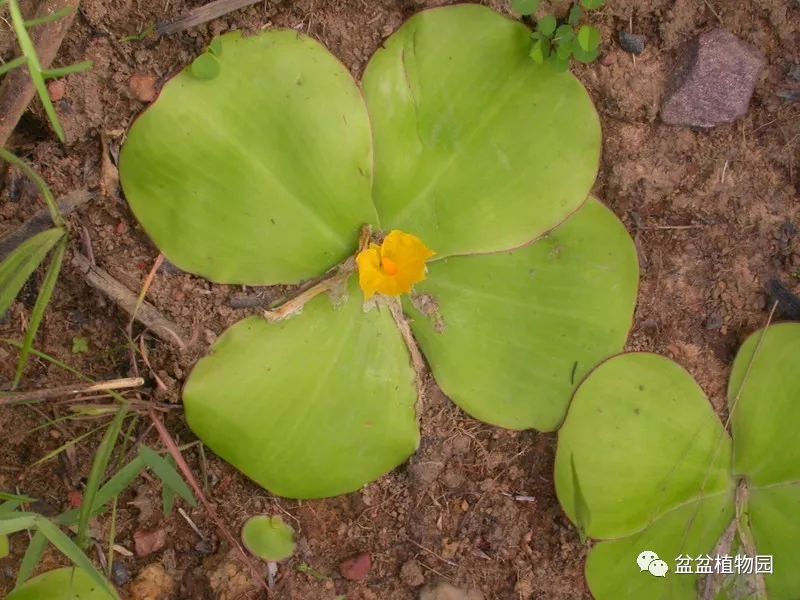
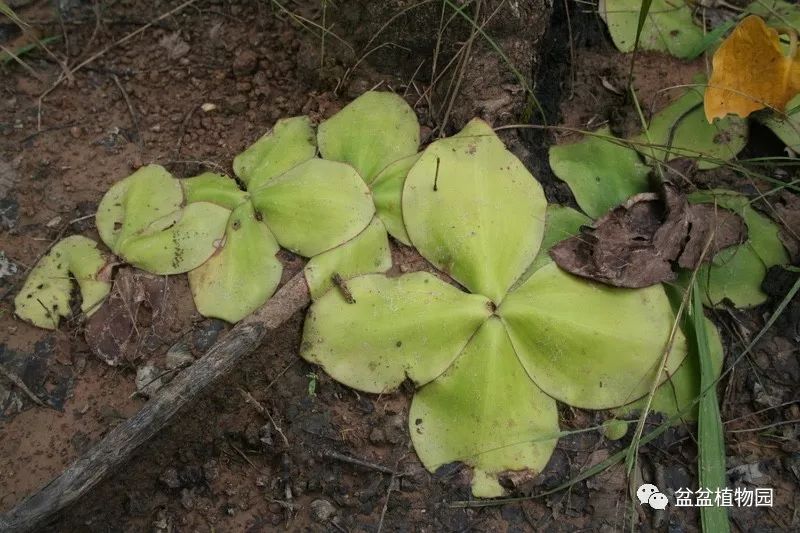
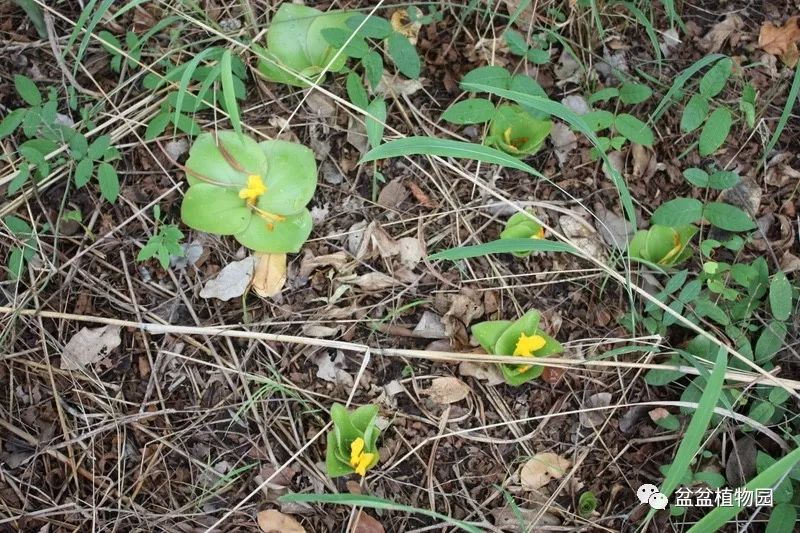
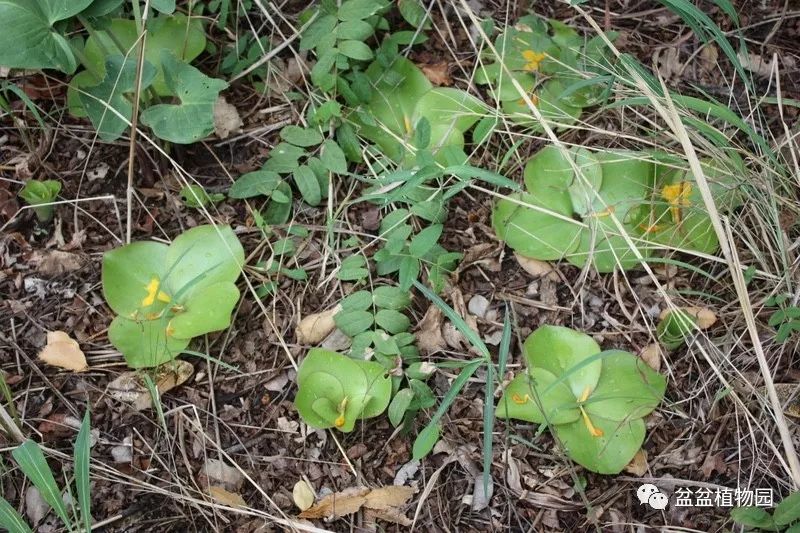
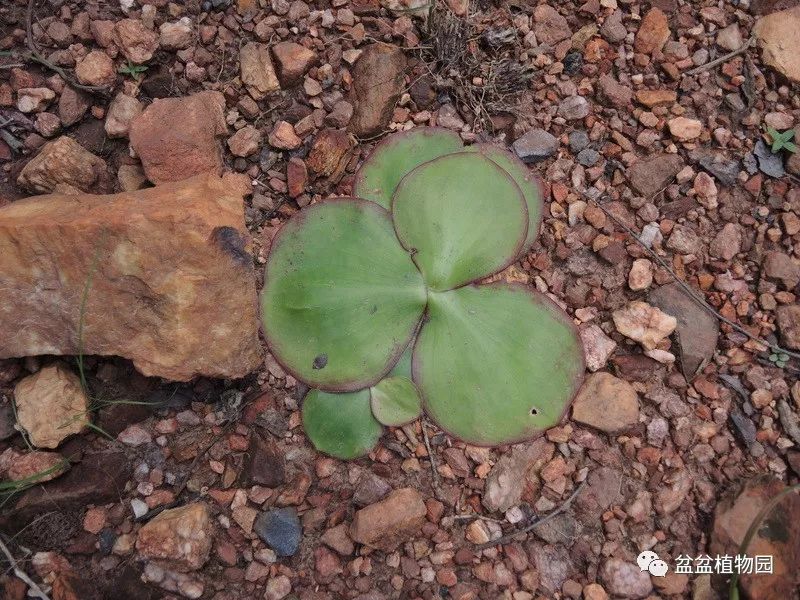
他们的地下储藏器官是根茎,它们很大程度上喜阴,有些物种能够在充足的阳光下生长。他们喜欢潮湿的土壤和潮湿的气候。根茎被纸质鳞片覆盖,下半部分有毛根,在地面以下蔓延,形成新的分枝。在盆栽中,根茎将通过排水孔生长或沿着盆的内部轮廓生长。
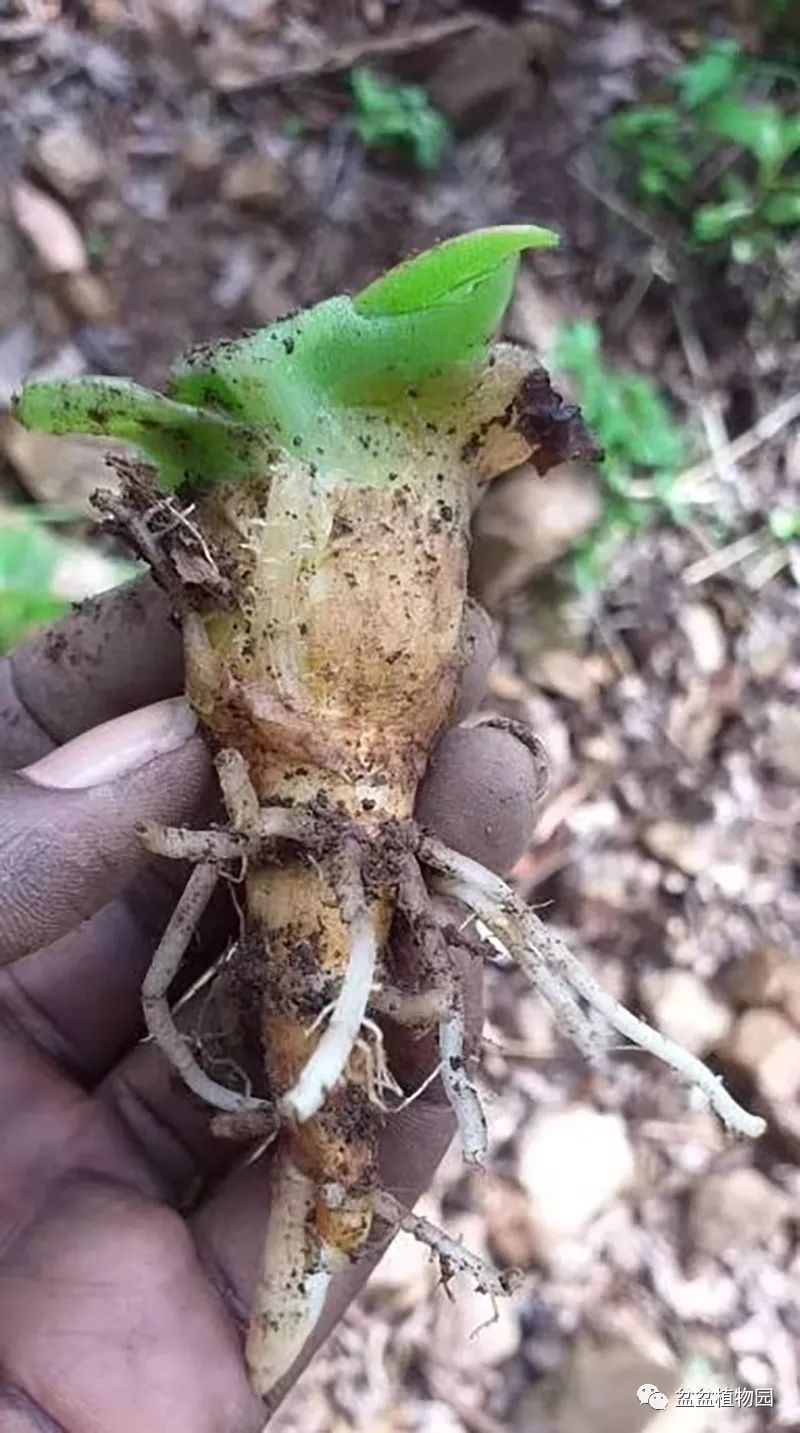
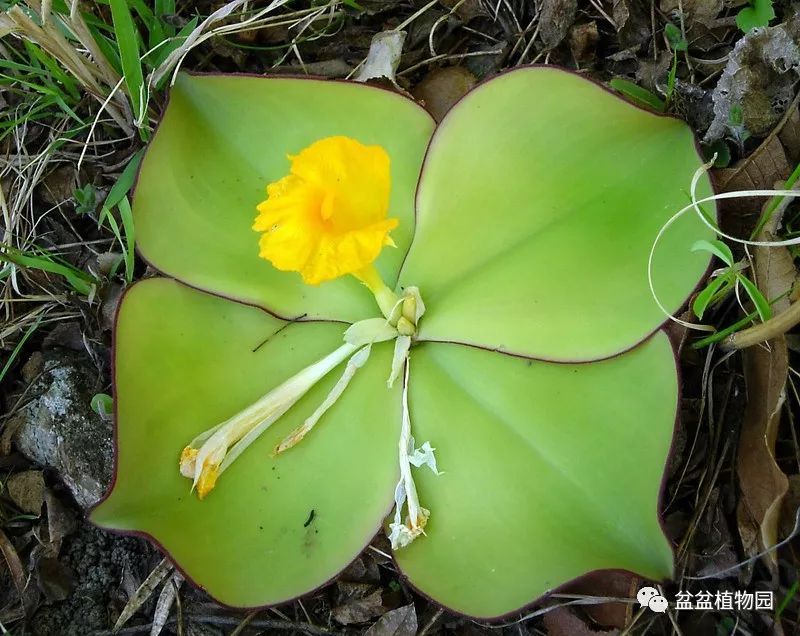

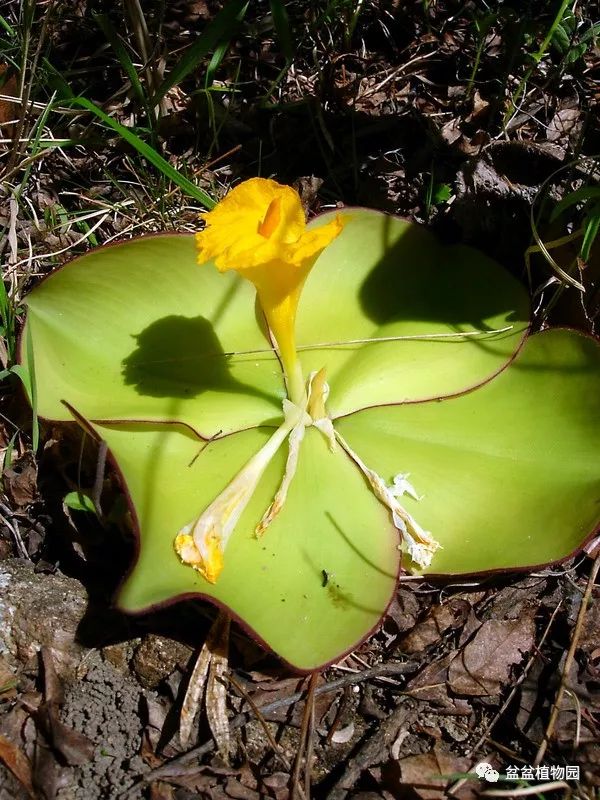
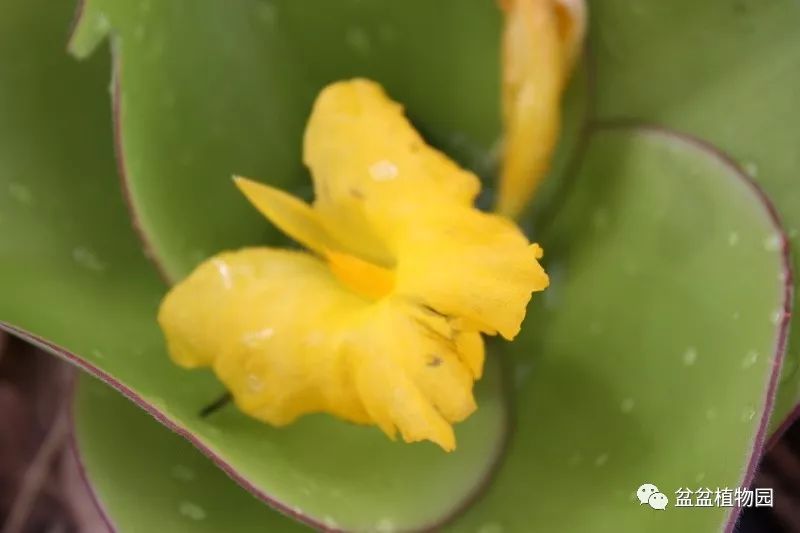
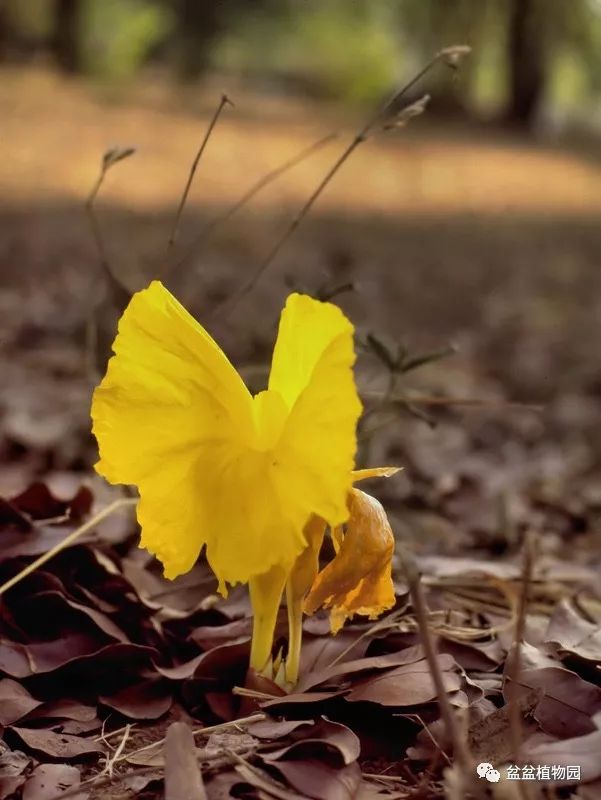
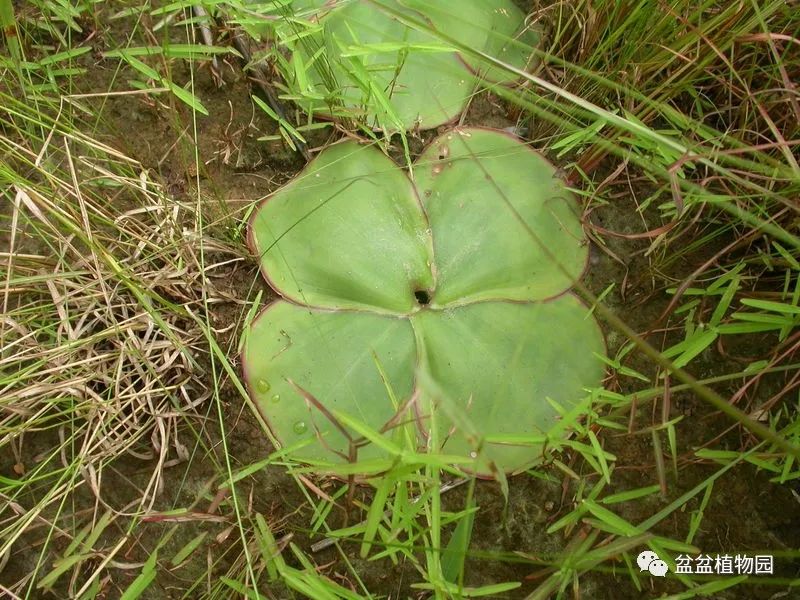
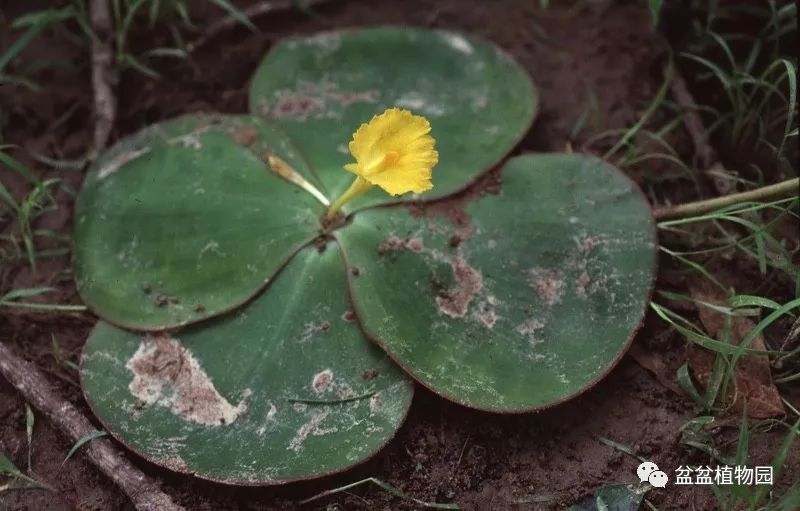

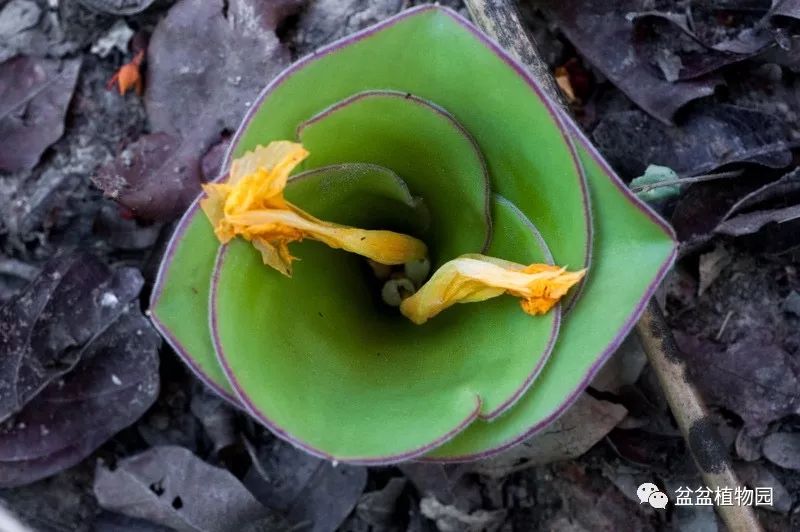
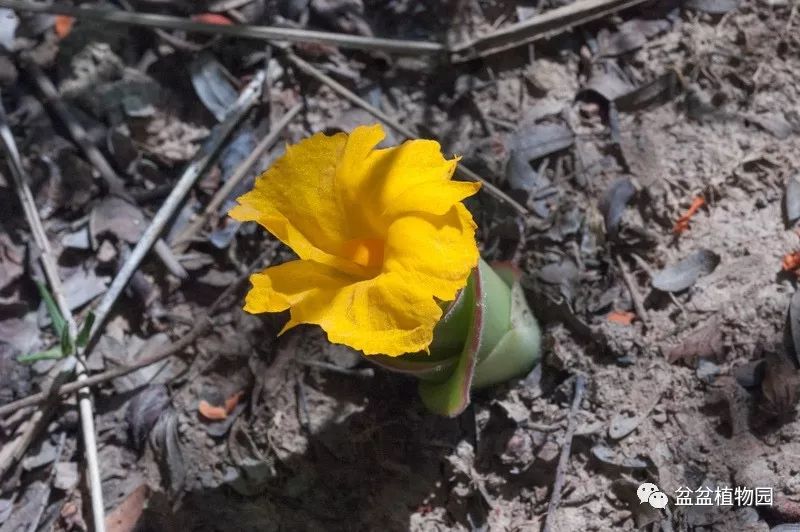
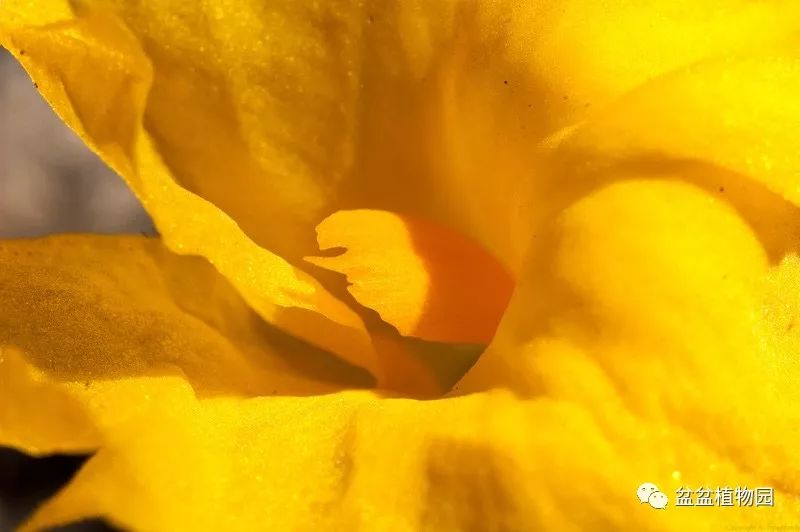
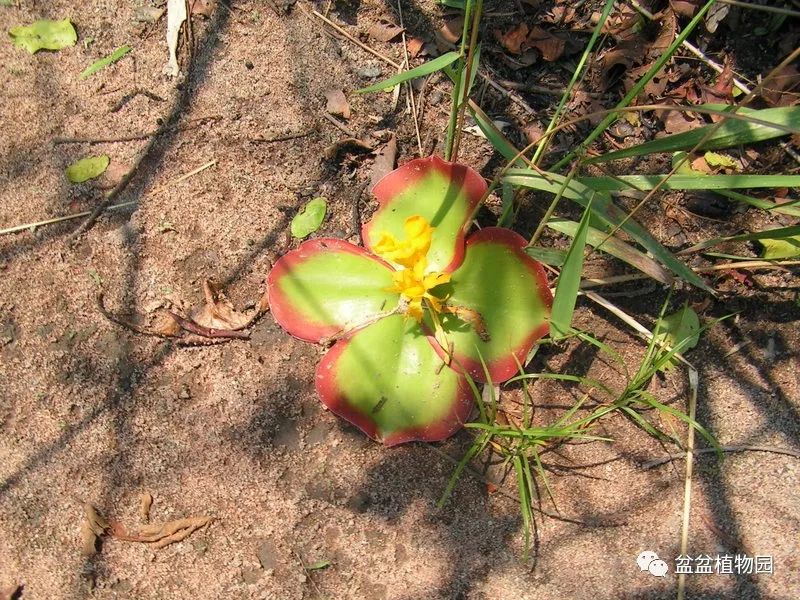
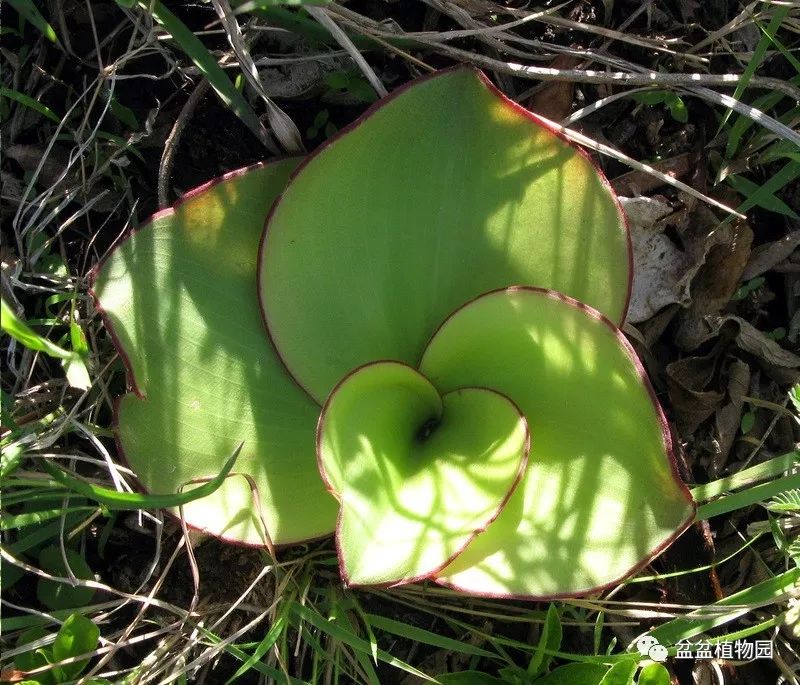
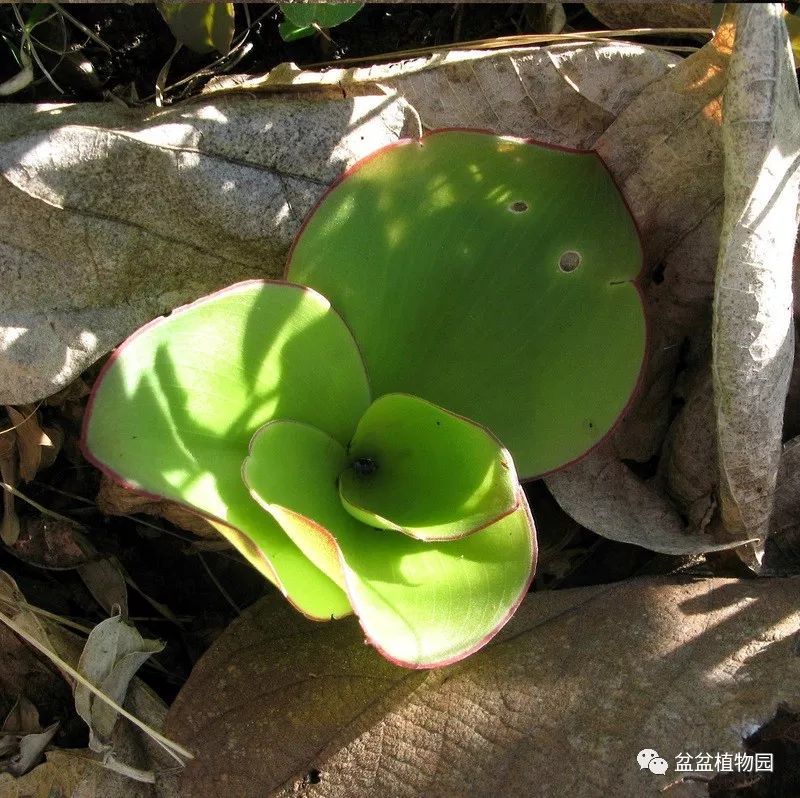
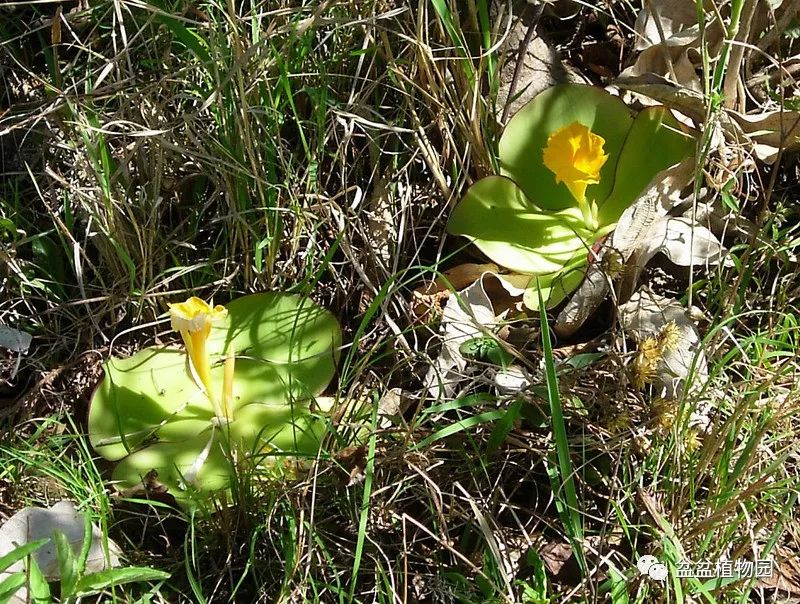

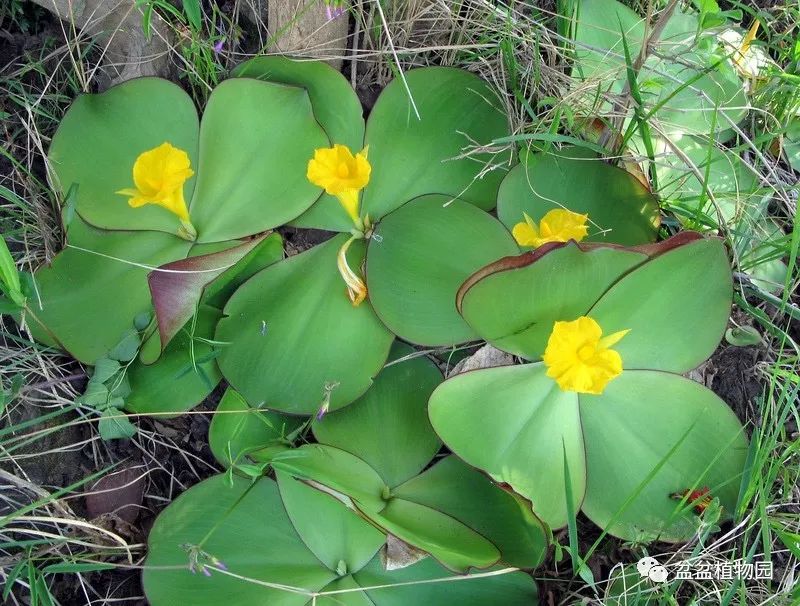

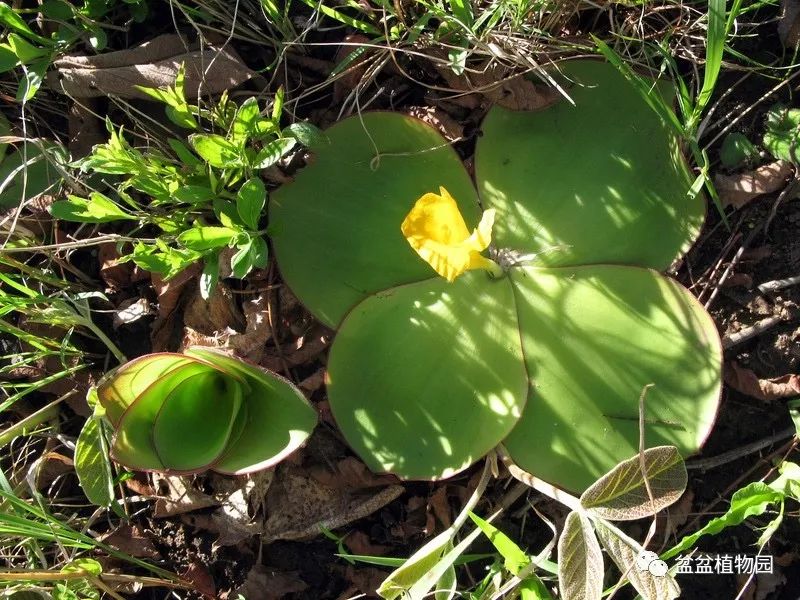

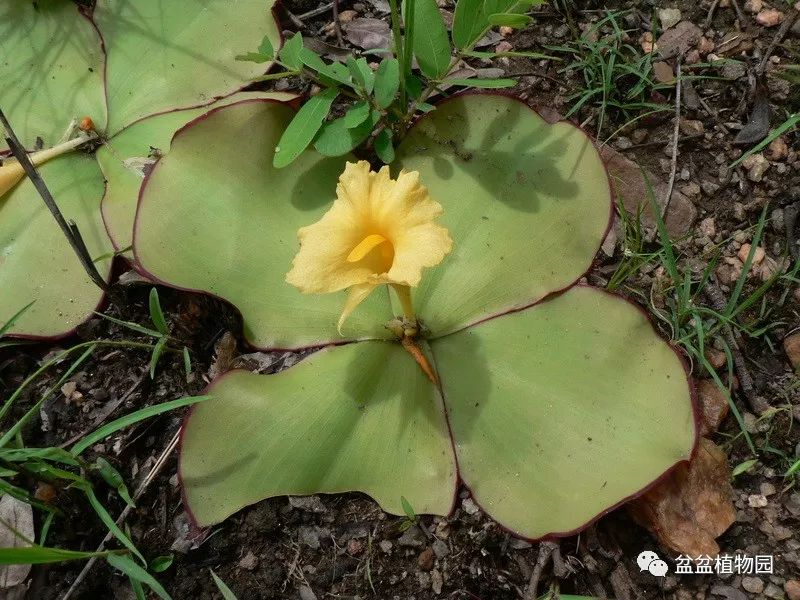
Costus spectabilis
Costus spectabilis, commonly known as the yellow trumpet, is an African, gregarious species of herb; low and perennial, it is found from Sierra Leone to Sudan to as far south as Angola and Zimbabwe.
Species habit and description
It produces four large (12 x 12 cm), fleshy leaves which lie flat on the ground and form a basal rosette. They are glabrous above and pubescent below, especially along the midrib. The leaf margin is entire, often with an edging of purple-pink. The inflorescence is terminal, growing from the center of the rosette. The flowers are showy, yellow, and open singly and die rapidly, but are immediately followed by another. The species becomes dormant during winter, shrinking to a centipede-like rhizome without roots. In spring it produces paddle-shaped leaves that appress to the soil when fully formed, similar to water-lily pads. The abaxial leaf surface has a spongy white texture. Flowers are bright yellow with a crisped margin, and some 9 cm across, with a large staminodial labellum, and resembling those of a pumpkin. The texture of the flower is soft and thin.
Familial traits
It is one of some 109 species belonging to the family of Costaceae, which is closely related to the ginger family Zingiberaceae. All are tropical and occur in Asia, Africa, Australia and the Americas. Their underground storage organs are rhizomes, and they are largely shade-loving, with some species able to grow in full sunlight. They prefer moist soil and a humid climate.[1] The rhizomes, which are covered in brown papery scales which are hairy in their lower half, lengthen, spreading below ground level to form new offshoots. In cultivation in pots, the rhizomes will grow through drainage holes or follow the inside contours of the pot.
Range and habitat
This geophyte is found over much of tropical Africa in Angola, Benin, Burkina Faso, Burundi, Cameroon, Chad, Côte d’Ivoire, Democratic Republic of the Congo, Ethiopia, Gabon, Ghana, Guinea, Kenya, Malawi, Mali, Nigeria, Senegal, Sierra Leone, Sudan, Tanzania, Togo, Uganda, Zambia and Zimbabwe. It is found in wooded grassland and deciduous woodland, occasionally near termite mounds or around rocks.
Symbolism
Claire Waight Keller included the plant to represent Nigeria in Meghan Markle’swedding veil, which included the distinctive flora of each Commonwealth country.
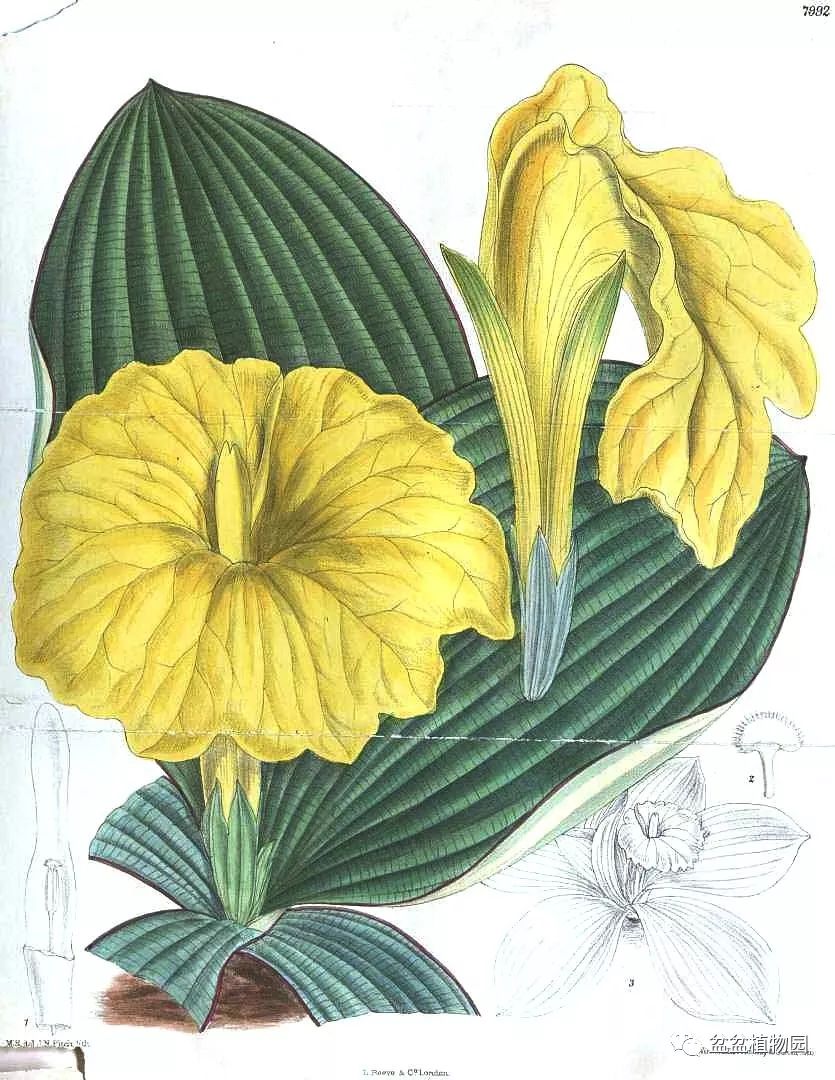
(维基百科)

评论(0)